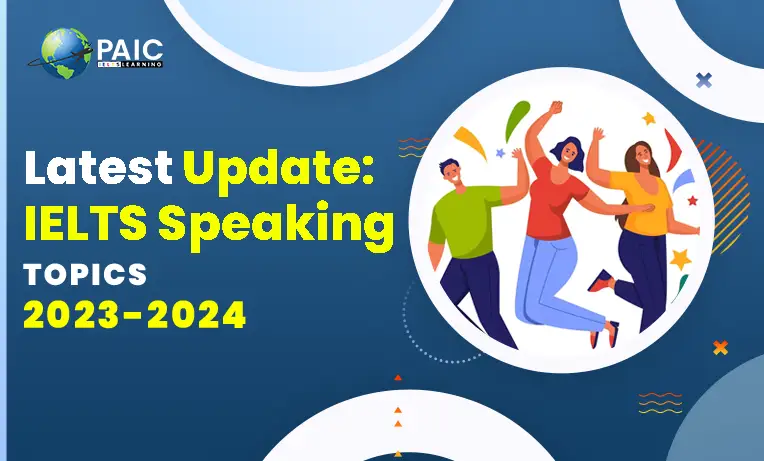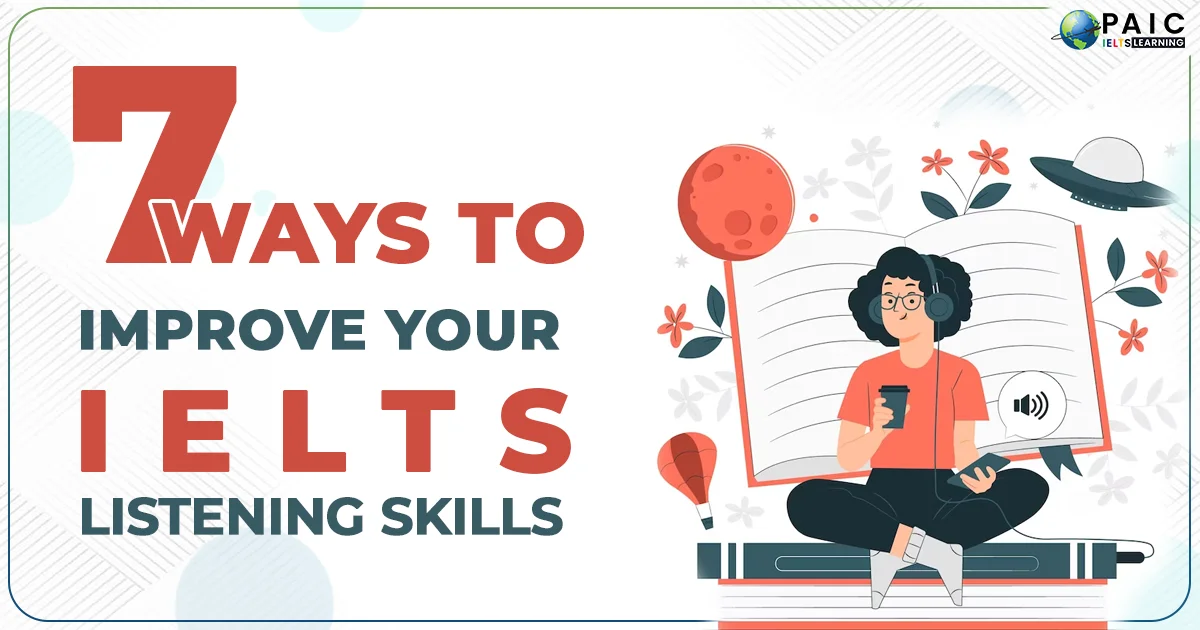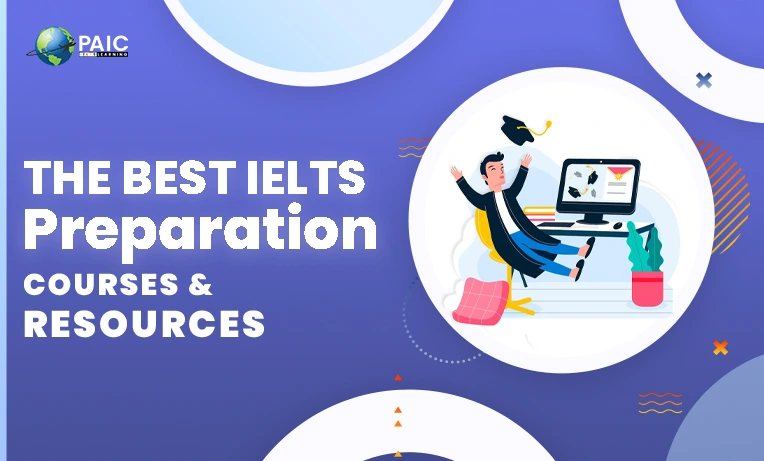Tags : IELTS
The IELTS Speaking test is a vital component of the International English Language Testing System, and it often serves as a critical step for individuals seeking to study, work, or migrate to English-speaking countries. Understanding the latest topics and updates in the IELTS Speaking section can significantly enhance your performance and boost your confidence. This comprehensive article will delve into the latest IELTS Speaking topics for 2023-2024 and provide valuable insights and tips to help you excel in this essential examination.
Part 1: General Introduction and Conversation (4-5 minutes)
Part 1 of the IELTS Speaking test is designed to put candidates at ease by starting with familiar topics. It aims to simulate a natural conversation, allowing candidates to introduce themselves and converse comfortably with the examiner. Here are the topics you can expect in this section:
Hometown and Home:
In this segment, be prepared to discuss your hometown. Please describe its location, size, notable landmarks, and what you particularly like or dislike about it. Ensure to provide insightful details that paint a vivid picture for the examiner.
Work or Studies:
The conversation may turn to your current occupation or course of study. Share information about your job or academic pursuits, including the reasons behind your chosen path and future aspirations. Emphasise the relevance of your work or studies to your goals.
Hobbies and Interests:
This topic allows you to talk about your hobbies and interests. Explain how you developed these interests, why they matter to you, and how they enrich your life. Showcase your passion and enthusiasm for these activities.
Family:
Family-related questions may come up, such as details about your family members, their occupations, and any unique family traditions or activities. Share anecdotes or insights that demonstrate your close connection to your family.
Travel and Tourism:
Be ready to recount your travel experiences, discuss your dream destinations, or recall memorable trips. Mention any cultural or educational insights gained from your travels and how they have influenced you.
Technology:
In this tech-centric era, technology is a common topic. Discuss your relationship with technology, your favourite gadgets, or your views on the role of technology in contemporary society. Offer thoughtful perspectives on the impact of technology on daily life.
Part 2: Cue Card(Short Introduction of Cue Card) (3-4 minutes)
Part 2 introduces a cue card that contains a specific topic, which you must speak about for 1-2 minutes. You'll also have some preparatory time to jot down key points. Here are some of the cue card topics you may encounter in 2023-2024:
A memorable childhood event:
Recall a cherished memory from your early years, such as a family vacation, a birthday celebration, or a school achievement. Explain why this event is special and how it shaped your life.
A place you'd like to visit:
)Describe a destination you aspire to visit.Explain what fascinates you about this place, what you hope to experience, and how this journey aligns with your interests or goals.
A book, movie, or song that influenced you:
Share your thoughts on a particular book, movie, or song that has significantly impacted your life. Discuss the themes, characters, or lyrics that resonated with you and how they shaped your perspective.
A historical figure:
Choose someone you admire and explain why. Delve into their achievements, principles, or contributions to society. Highlight how their life and values inspire you.
An invention that changed society:
Select a groundbreaking invention and discuss its transformative effects on society. Explore the before-and-after scenarios, emphasizing how this invention revolutionized people's lives and the world.
Part 3: Discussion (4-5 minutes)
- Part 3 extends the conversation by asking follow-up questions about the cue card topic.
- This section assesses your ability to provide detailed responses and engage in a deeper discussion with the examiner.
- Be prepared to articulate your thoughts clearly and concisely, elaborating on the ideas you presented in Part 2.
General Tips for IELTS Speaking Success:
Practice:
Consistent practice is the cornerstone of success in the IELTS Speaking test. Utilise flashcards with sample questions to simulate the test environment. Record your responses to assess your progress.
Vocabulary:
Endeavor to expand your vocabulary across a broad spectrum of topics. Familiarise yourself with synonyms and idiomatic expressions related to common themes in Part 1.
Fluency:
Work on speaking fluently and coherently. Avoid excessive pauses and minimize the use of filler words such as "um" and "uh." Practice maintaining a steady flow of speech.
Grammar:
Ensure that your sentences are grammatically correct. Vary your sentence structures to demonstrate your language proficiency.
Pronunciation:
Practice pronunciation to ensure clarity in your speech. Focus on accent reduction if necessary, as clear pronunciation enhances your communication skills.
Mock Tests:
Take advantage of mock tests offered by reputable IELTS preparation resources. (follow) These tests help you become familiar with the test format, timing, and the types of questions you'll encounter.
Extended Tips for IELTS Speaking Success:
Understanding the Assessment Criteria:
Familiarise yourself with the assessment criteria for IELTS Speaking. You are evaluated on four key aspects: Fluency and Coherence, Lexical Resource (vocabulary), Grammatical Range and Accuracy, and Pronunciation. Understanding these criteria can guide your preparation and help you focus on areas that need improvement.
Time Management:
- In Part 1, each topic typically lasts 4-5 minutes. Ensure that you give comprehensive yet concise responses within the allotted time.
- In Part 2, aim to speak for 1-2 minutes as instructed on the cue card. Practice timing yourself to maintain control during the test.
Active Listening:
Pay close attention to the examiner's questions and prompts. Sometimes, candidates may misinterpret a question and provide an unrelated answer. Active listening ensures that you respond appropriately, enhancing your overall performance.
Natural Speech:
Strive for a natural, conversational tone in your responses. Refrain from sounding rehearsed or overly formal. Imagine you are speaking to a friend rather than an examiner, and your answers will come across as more authentic.
Expanding on Responses:
Whenever possible, expand on your responses. Instead of providing brief, one-sentence answers, use the opportunity to showcase your language skills. Provide examples, details, and personal experiences to enrich your answers.
Transition Phrases:
Employ transition phrases and connectors to link ideas coherently. Phrases like "Furthermore," "On the other hand," and "In addition" can help structure your responses and make them easier to follow.
Staying Calm Under Pressure:
Nervousness is common during high-stakes exams. Practice relaxation techniques like deep breathing to calm your nerves before and during the test. Remember that it's okay to pause briefly to gather your thoughts.
Accent and Clarity:
While it's not necessary to eliminate your accent, aim for clarity in pronunciation. Ensure that the examiner easily understands your speech. If you have a strong accent, work on enunciating words.
Conclusion
Mastering the IELTS Speaking test is attainable with dedication and a deep understanding of the latest topics. Following the guidelines and tips in this article can enhance your confidence and increase your chances of achieving your desired IELTS score. Staying informed about the latest updates, practicing regularly, and delivering well-structured, articulate responses will position you for success in the IELTS Speaking component. Best of luck in your IELTS journey!




